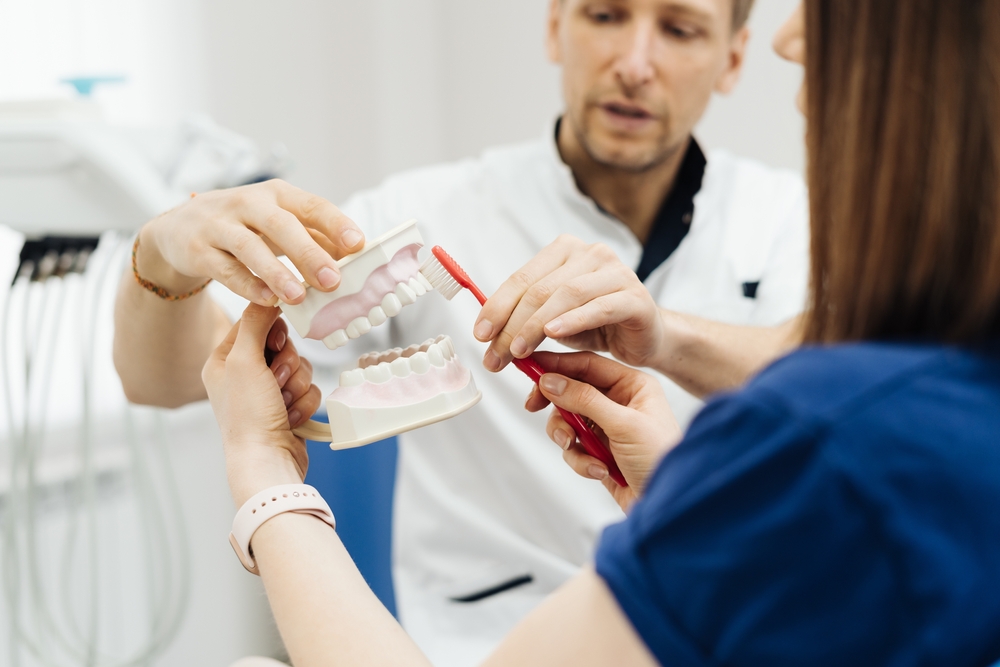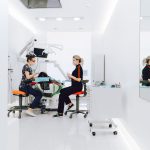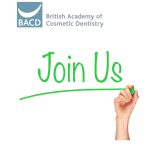Fixed solutions to edentulism are proving to be an increasingly popular choice among patients. Dental implantology continues to evolve and adapt, facilitating treatment that can meet a more varied range of patient needs – one such modality is immediate full-arch implant dentistry. If this treatment option is already part of a clinician’s expertise, it is vital for them to continually refresh and update their skills, so they can continue providing outcomes that are beautiful, functional and long-lasting.
Who are they suitable for?
Edentulism has innumerable causative factors. Arguably the main reason is simply poor dental hygiene, which is a well-established and well-known fact within dentistry. This phenomenon is often associated with older individuals. As the body ages, the risk of edentulism increases with the accumulation of oral diseases over the individual’s life span, with caries being argued as the main reason for tooth extraction in older patients.[i] However, there are various other reasons as to why younger and older adults may lose their teeth, such as trauma. Dental trauma may be the result of a fall, sports injury, traffic accident or physical violence,[ii] with many of these situations leading to multiple dental injuries, and therefore potentially extensive tooth loss.
Despite the common association of dental implants with older patients, clinicians are treating patients who fall into varying age brackets. The mental, emotional and physical ramifications of edentulism are well-known to dental professionals – patients may suffer from self-esteem and confidence issues, which can worsen mental health concerns, such as depression.[iii] Physically, an edentulous patient may suffer from dietary issues, due to impaired mastication.[iv] In light of this, full-arch implant solutions can satisfy a range of patients, namely those who seek stability and discreetness, granting them the ability to live their life without the burdens associated with edentulism.
Put your education first
Full-arch dental implant treatment provides a plethora of benefits to the patient. Compared to a single unit implant, full-arch implant treatment provides a remarkable transformation for those who are fully edentulous. Nonetheless, there may be some individuals who feel apprehensive. It is vital to assist patients by giving them a clear image of the procedure, helping them to wade through misinformation and misconceptions so they can make the right decision for them.
The ‘same day’ aspect of the treatment will appeal to most, if not all patients, as they will generally only need to undergo one surgery. Likewise, the advancements made to many dental tools and technologies have helped to reduce the amount of operative and post-operative pain experienced, optimising the healing period and improving success rates. Indeed, studies have supported the efficacy and success of full-arch rehabilitation.[v] As with any treatment, potential risks and complications are inevitable and it is important that prospective patients understand this. Their own role in the aftercare and maintenance is likewise pivotal – for instance, it has been noted that patients who continue to smoke post-surgery may negatively impact the healing period, and therefore the final outcome of the treatment.[vi] Making sure that patients are well-equipped to care for their oral health is an equally vital stage in any dental treatment.
A knowledgeable and able clinician will possess the skills needed to treatment plan effectively, manage expectations and ensure patients are fully confident to take the next step in their treatment journey. Restoring a patient’s dentition is transformative, and so clinicians must ensure that the care they deliver is nothing short of exceptional.
 Curious for more?
Curious for more?
As many clinicians can attest, undergoing training for immediate full-arch implant dentistry is incredibly beneficial to strengthen your skillset and open up more possibilities for the practice, your career and your patients. If you have already undergone training in this area, then you may have already reaped the benefits this knowledge and skill provides. It is vital to ensure that the skills you learn are regularly refreshed and updated, so your patients continue to receive only the best care. As you will be investing time and money into a training programme, choosing one that provides you with a comprehensive range of resources is crucial.
Straumann® is proud to support dental professionals with an array of impressive educational programmes that cover all the disciplines of implant dentistry, including immediate full-arch protocols. Their offerings include courses that suit a range of experience levels and requirements, with full-time and part-time options. All courses utilise dental implant systems and products from Straumann® and are led by proficient and expert professionals. Together with a range of world-renowned education partners, Straumann® ensures that you will receive learning that is of an optimum and unwavering standard.
Continue changing lives
For patients, the expansion of dentistry means that they now have more treatment options than ever before. For clinicians, the possibilities for skill progression and career development are endless.
Full-arch implant dentistry is a single example of the areas that you can conquer within the field. Choosing to invest in education and learning is paramount, so you can confidently meet your patients’ demands and deliver life-changing care that lasts.
For more information, visit https://www.straumann.com/gb/en/dental-professionals/training-and-education.html
[i] Tiwari, T., Scarbro, S., Bryant, L.L. and Puma, J. (2015). Factors Associated with Tooth Loss in Older Adults in Rural Colorado. Journal of Community Health, [online] 41(3), pp.476–481. Available at: https://www.ncbi.nlm.nih.gov/pmc/articles/PMC4842337/ [Accessed 13 Sep. 2022].
[ii] Zaleckiene, V., Peciuliene, V., Brukiene, V. and Drukteinis, S. (2014). Traumatic dental injuries: etiology, prevalence and possible outcomes. Stomatologija, Baltic Dental and Maxillofacial Journal, [online] 16(1). Available at: https://sbdmj.com/141/141-02.pdf [Accessed 13 Sep. 2022].
[iii] Tyrovolas, S., Koyanagi, A., Panagiotakos, D.B., Haro, J.M., Kassebaum, N.J., Chrepa, V. and Kotsakis, G.A. (2016). Population prevalence of edentulism and its association with depression and self-rated health. Scientific Reports, [online] 6(1), p.37083. Available at: https://www.nature.com/articles/srep37083 [Accessed 13 Sep. 2022].
[iv] Emami, E., de Souza, R.F., Kabawat, M. and Feine, J.S. (2013). The Impact of Edentulism on Oral and General Health. International Journal of Dentistry, [online] 2013, pp.1–7. Available at: https://www.ncbi.nlm.nih.gov/pmc/articles/PMC3664508/ [Accessed 13 Sep. 2022].
[v] Maló, P., Araújo Nobre, M., Lopes, A., Ferro, A. and Nunes, M. (2019). The All‐on‐4 concept for full‐arch rehabilitation of the edentulous maxillae: A longitudinal study with 5‐13 years of follow‐up. Clinical Implant Dentistry and Related Research. [online] Available at: https://onlinelibrary.wiley.com/doi/abs/10.1111/cid.12771 [Accessed 13 Sep. 2022].
[vi] Chrcanovic, B.R., Kisch, J. and Larsson, C. (2020). Retrospective evaluation of implant-supported full-arch fixed dental prostheses after a mean follow-up of 10 years. Clinical Oral Implants Research. [online] Available at: https://onlinelibrary.wiley.com/doi/full/10.1111/clr.13600 [Accessed 13 Sep. 2022].






 Curious for more?
Curious for more?
 Forming a habit is no easy task. In fact, research estimates that it can take anywhere between 18 to 254 days to form a habit, with 66 days usually being the sweet spot where the new behaviour becomes automatic.
Forming a habit is no easy task. In fact, research estimates that it can take anywhere between 18 to 254 days to form a habit, with 66 days usually being the sweet spot where the new behaviour becomes automatic.










